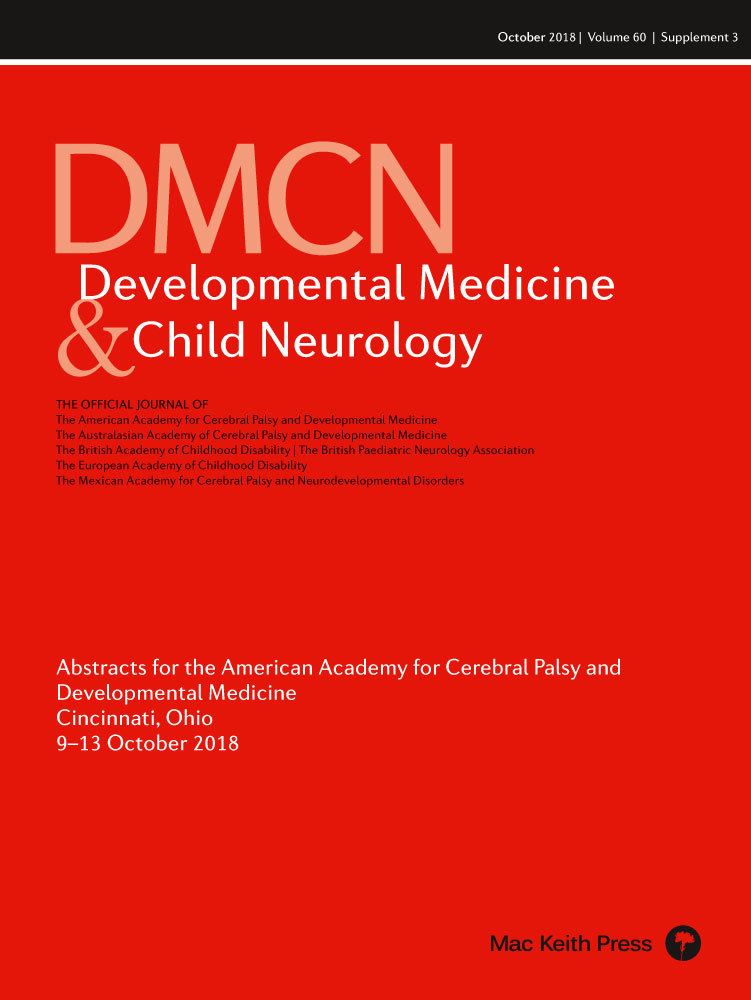Promoting evidence-based practice in the provision of health-coaching interventions for parents of children with developmental disabilities: Systematic literature review
SP60
T Ogourtsova1 , A Majnemer; 2, M O'Donnell; 3
1University of British Columbia, Vancouver, BC; 2Research Institute of the McGill University Health Centre, Montreal, Quebec, Canada; 3Department of Pediatrics UBC/ Child Health BC, Vancouver, BC
Background and Objective(s): Children with developmental disabilities (DD) face numerous functional challenges prompting referral for diagnosis and treatment. Present health-care service models are often not sufficiently nimble or available to address these families’ needs, urging changes to the current delivery model. Health-coaching (HC), an educational program that could be offered by different and more accessible means, recently emerged and could potentially improve parental self-management and empowerment in dealing with their child's arising disabilities. As a first step in promoting and guiding related evidence-based practice, we aim to determine the constituents, effectiveness and gaps in existing worldwide HC interventions for parents of children with DD.
Study Design: A Systematic Review approach was employed.
Study Participants & Setting: Randomized clinical trials (RCTs), examining a parental HC intervention applied to parents of children with DD (without direct parent-child interaction training), and containing at least one parent-related outcome were included.
Materials/Methods: Methods comprised a comprehensive, librarian-guided medical databases literature search; transparent study selection and data extraction; studies’ quality assessment (PEDro scale); and synthesis of sufficiently similar data per population and outcome of interest for overall level of evidence using standard definitions.
Results: Following the initial search (n=2558 citations), exclusion of duplicates, exclusion by title/abstracts, and by full texts, 9 RCTs of low (n=1), fair (n=1) and strong (n=7) quality were included. Most common reasons for exclusion by full text review were absence of outcome of interest, treatments involving simultaneous parent-child interaction or applied solely to the child, and non-RCT design studies. Included interventions targeted parents (sample size range: n=27–122) of children (age range: 1.5–9 years old) with DD (mixed diagnoses, n=3 RCTs), Autism Spectrum Disorder (ASD, n=6 RCTs), and Cerebral Palsy (CP, n=1 RCT), in the form of psychoeducational group workshops, online parent coaching and individual/group parent coaching (duration range: 4–24 sessions). In DD, there is strong Level 1a evidence that HC is more effective than comparison interventions or no treatment in improving parental stress and self-efficacy. In ASD, there is strong Level 1a evidence that HC is not more effective than comparison interventions or no treatment in improving parental stress and self-efficacy. There is conflicting Level 4 evidence regarding HC effectiveness on parental mood and affect. In CP, there is limited Level 2a evidence that HC is not more effective in improving parental stress and self-efficacy. Not one study evaluated parental quality of life or cost-effectiveness. Interventions mainly focused on the child's developmental/behavioural achievements through parental training (n=9 RCTs), and less on parent empowerment and self-management abilities in dealing with their child's disabilities and ensuing obstacles (n=3 RCTs). This could potentially explain the lack of found effectiveness in improving parental outcomes.
Conclusions/Significance: Findings support the need for future research in design and implementation of a service model focusing on parents’ self-management skills, empowerment, efficiency and cost-effectiveness. This in turn could contribute to the highly needed improvements to the traditional health service models and to life outcomes of children with DD and their parents.




